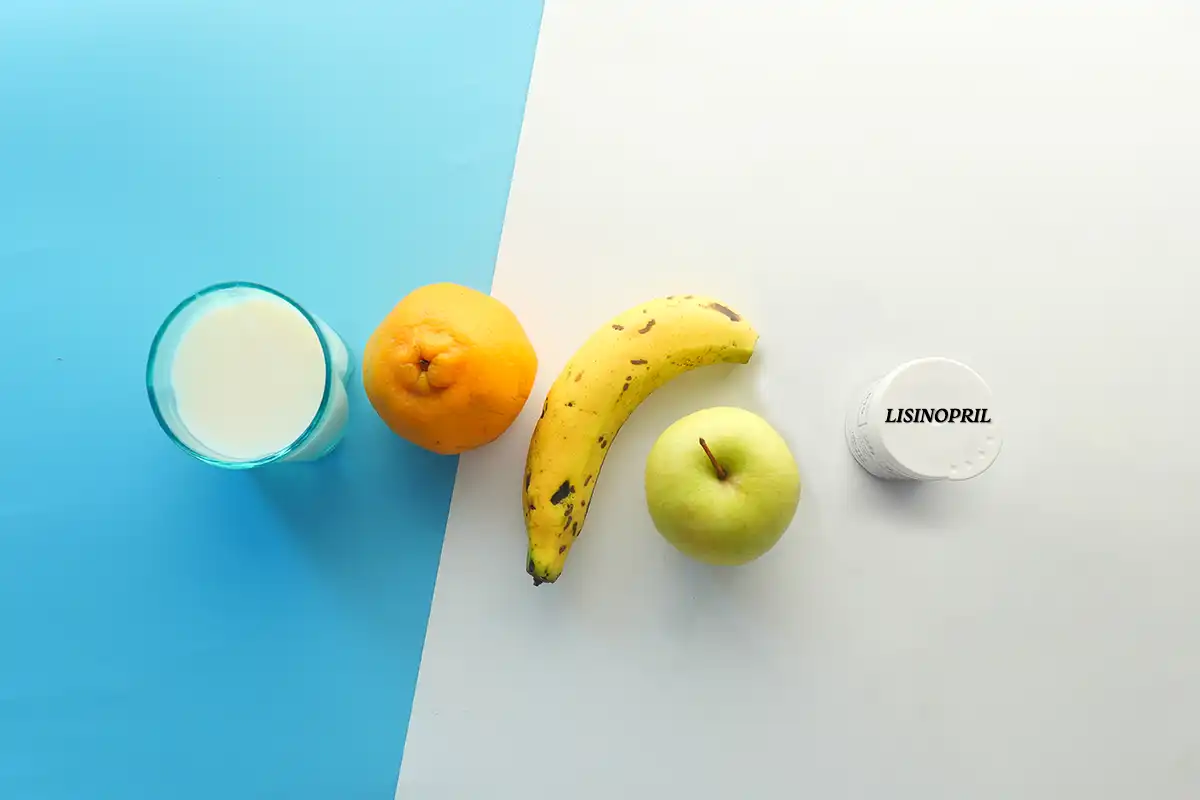Lisinopril is a commonly used medicine for controlling hypertension, heart failure, and stroke. On an average there were 98 million prescriptions issued for lisinopril in the US alone. It plays important roles in prolonging survival after a heart attack. Today's life is in full hurry and anxious as well as always on point type, health especially heart health has become a major concern. The food we eat , the lifestyle we live have a great impact on our health. Thus we get dependent on medicine in certain circumstances.
Our body needs minerals to get that extra potential benefit, potassium is such a mineral which is useful to get the same. It ensures proper functioning of the nerves and muscles in your heart.
Why You Should Not Use Lisinopril And Potassium Together?
Lisinopril is a medicine and potassium a useful mineral for health, they both can interact with each other. We find potassium in various foods as well as through other sources, when the potassium in the blood level increases it can affect the kidneys badly and on the other side lisinopril can also increase potassium level in the blood thus causing problems.
When you consume Lisinopril and potassium together it is confirmly increase the potassium level by interacting themselves, it can even affect the working of lisinopril which is controlling hypertension and will result in irregular heartbeat or heart palpitations.
“Don’t Consume Lisinopril And Potassium Together, even the Salt Substitutes”
How Lisinopril Increased Potassium Level?
Lisinopril is an ACE inhibitor which works by relaxing and widening the blood vessels in order to control the blood pressure and maintain the blood flow throughout the body. Lisinopril reduces proteinuria by decreasing intraglomerular pressure reducing hyper filtration. It results in high potassium levels. If you consume potassium rich foods it can interact and consequences can happen such as Hyperkalemia.
Which Food Should Be Avoided With Lisinopril?
Potassium can be received through fruits, foods and specific potassium mineral medicine, although potassium is good for the health but a large amount also harms the health in ways.
Below are some foods should be avoided with lisinopril:
- Dried Fruits
- Spinach
- Orange Juice
- Bananas
- Yogurt
- Salmon
- Avocado
- Coconut water
- Tomatoes
- Broccoli
- Beetroots, Beet greens
- Chicken
And any other potassium medicine or foods should be avoided when you have consumed Lisinopril.
How You Can Avoid Interaction Without Giving Up Your Favorite Food?
Lisinopril and potassium are interactive with each other. That doesn’t mean you have to fully stop the food regarding this. You can consume food , supplement medication in a limited way.
While taking potassium related meds please consult with your doctor if you are undergoing lisinopril treatment.
Potassium foods should be consumed in a very limited amount.
You have to cut off salt which is usually present in the potassium supplement.
Food That Contains Potassium
High Potassium (More than 200 milligrams): Banana, Raisin, Orange juice, papaya, Dried fruits
Moderate Potassium (50 to 20 Milligrams): Apple, peaches, watermelon, beans, lettuce, peas, corn.
Low Potassium Foods (<50 Milligrams): Cranberries, cauliflower,broccoli mangoes etc.
What Is The Average Normal Potassium Level In The Body?
The average level of potassium is about 3.6 to 5.2 millimoles. If it exceeds more than 6 millimoles then you have to see a doctor immediately. Thus you should generally avoid use of lisinopril and potassium food together.
Conclusion
Lisinopril and potassium should be avoided as it results in heart palpitations or irregular heartbeats. To avoid this, consume low potassium foods and follow the guidelines of the doctor, if you are under renal related issues try to completely avoid consuming potassium.



 04 Jul 2022
04 Jul 2022


